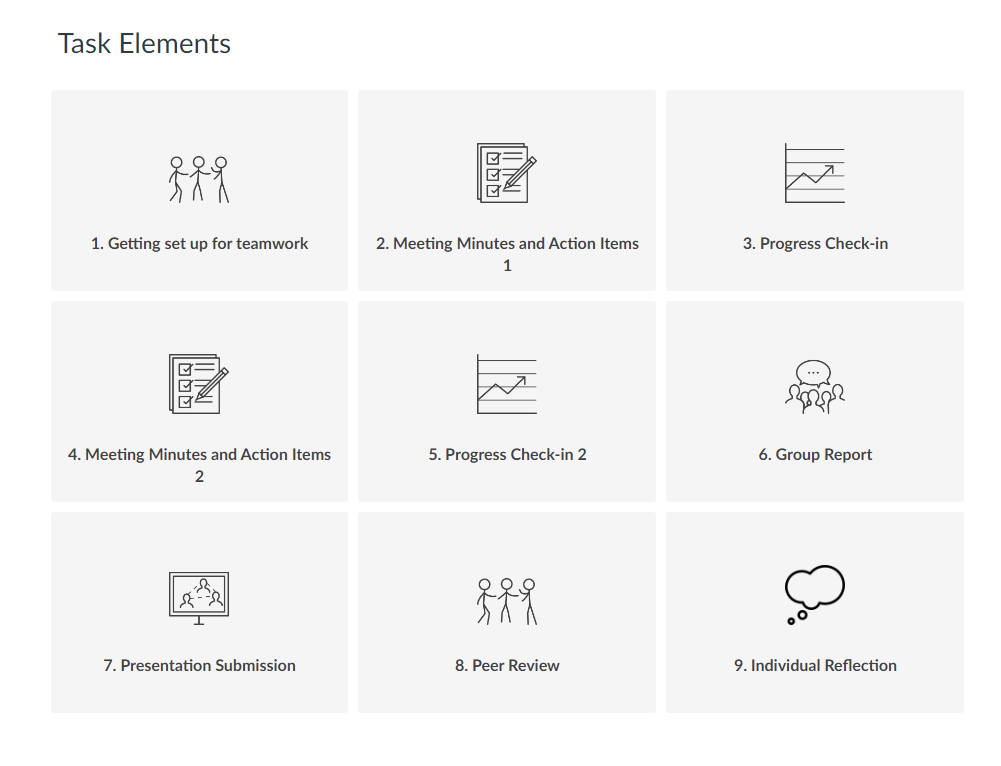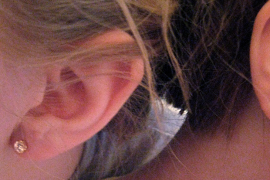In April 2023, Dr. Rhonda Orr from Exercise and Sport Science approached the Educational Innovation team to collaborate on the design of a group assessment for a brand-new unit, encapsulating assessment for, as, and of learning launching in Semester 2, 2023. Rhonda wanted to engage her EXSS2039 Sport Injury Epidemiology and Mechanisms students in an authentic task that would span the entire semester, allowing her to provide iterative feedback throughout.
Rhonda applied through the Educational Design Accelerator program in the first half of 2023. EXSS2039 is a second-year unit in the Bachelor of Applied Science, and a core unit for the new High Performance in Sport major. It provides students with methodological practice for sports injury surveillance, in order to obtain an understanding of the complex and multifactorial nature of sports injuries as the keystone to establishing effective injury prevention programs. It also covers the fundamental aspects of injury epidemiology and involves students’ working with their own data or data collated from other sources. To facilitate this, the assessment was designed in multiple steps to emulate an authentic lifecycle of collaboration, data collection, presentation and reporting that students would encounter in their future practice.
Assessment design
The new assessment task included multiple elements, some of which were designed to support the collaborative process, especially in organising how data would be collected on-site during training sessions or games. These tasks included:
- establishing a team agreement, regular group meetings, and check-ins with the unit coordinator so students could be supported throughout the whole process but also be accountable for their contributions to the group work,
- a group report consistent with those produced for sporting teams’ high-performance staff (weighted 30%)
- group presentation (sporting teams and coaching staff simulation) to summarise findings and offer solutions and prevention strategies (weighted 15%) which would authentically reflect how sporting teams work together to prevent injuries.
- peer feedback (3%) provided by their peers on presentation quality to develop graduate qualities such as communication skills and influence.

The final group report and presentation provided students with an opportunity to demonstrate the application of their knowledge and skills in the context of injury prevention in high-performance sports. An individual reflection, providing an opportunity for assessment as learning, was also included. Students were asked to consider how their professional practice skills had developed in terms of both content analysis and communication within the group, as well as with the sporting teams they observed and from which they gathered data.
What we learned
The semester-long task had the potential to be confusing. The introductory page to the assessment was designed to help understand how the different elements fit together and provide quick links to each separate part. However, some less organised students started their visits and observations in week 5 instead of week 2, meaning they did not have enough time to gather sufficient data. This suggests that some student may not have appreciated the impact of delays in completing early components. To address this, the next iteration will include a video explaining the task, offering students an alternative format to understand the different parts of the task and how they feed into later stages.
One thing is clear: the experience had a profound effect on many students. Rhonda noted that student provided rich individual reflections, providing insightful information and demonstrating that the task was a valuable contribution to their professional development. Students commented in their final reflections that the project was:
- ‘by far the most exciting event I had done’
- ‘an extremely valuable learning experience’
- ‘give me the confidence in the future when working with elite athletes’
- ‘provided a new perspective and process in comparison to my other university classes
- ‘transferable skills for employment opportunities’
- ‘thank you so much for your dedication and hard work……very big learning curve for myself to take initiatives and ownership for my own work, and it is one of biggest things I’ll take out of this course.’
One of the key strengths of this assessment is its authenticity. By engaging students in activities such as data collection during actual sporting events, collaboration with peers, and presenting findings to a simulated audience of coaching staff, the assessment goes beyond traditional academic exercises. It provides a learning experience that is both practical and relevant to the students’ future careers. Authentic assessment offers significant benefits by bridging the gap between theoretical knowledge and practical application. It helps students develop transferable skills crucial for their future careers, such as data collection, teamwork, and professional communication. By engaging in real-world tasks, students experience increased motivation and engagement, as they see the relevance of their work to their future professions. The positive feedback from students underscores the impact of this approach. Additionally, incorporating individual reflections into the assessment allows students to critically evaluate their learning, fostering professional growth. Finally, by simulating real-world challenges, students gain valuable insights into the practical aspects of their future roles, better preparing them for the demands of their chosen field.
Assessment design is an iterative process, and to make the experience seamless, Rhonda has also identified some issues related to pre-planning group allocation and communication between teams and students. These strategies will be put in place in the next round of the course in semester 2 2024 to make the experience more enjoyable and even more valuable for all students.
Want a deeper dive into assessment design?
You can enrol in workshops about assessments, participate in MPLF module 10 on enhancing group work and/or MPLF module 05 on assessment and feedback forlLearning, or request an Educational Design Accelerator project to get support from the Educational Innovation team in redesigning an assessment.
You can also view Rhonda’s presentation at MPLF module 17: Connections on the process of this assessment.





